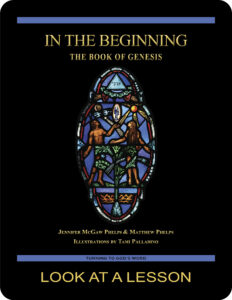firstborn
 The Letter to the Colossians 1:15 (NABRE) contains a beautiful and powerful description of the kingship of Jesus Christ, and one of the key points in that description is that Jesus came before all other creatures as the firstborn. This seems like an odd concept because as a human person, Jesus obviously was born after others. We tend not to think of Jesus the divine person as ever having been born. The Greek word πρωτότοκος (prototokos) comes from two parts—πρῶτος (protos), which means first, and τίκτω (tikto). The word tikto can mean “born,” but it also more broadly can refer to bringing forth fruit as from a seed. The generation or coming to be here described is not specific to human procreation but rather describes a more general coming to be or becoming.
The Letter to the Colossians 1:15 (NABRE) contains a beautiful and powerful description of the kingship of Jesus Christ, and one of the key points in that description is that Jesus came before all other creatures as the firstborn. This seems like an odd concept because as a human person, Jesus obviously was born after others. We tend not to think of Jesus the divine person as ever having been born. The Greek word πρωτότοκος (prototokos) comes from two parts—πρῶτος (protos), which means first, and τίκτω (tikto). The word tikto can mean “born,” but it also more broadly can refer to bringing forth fruit as from a seed. The generation or coming to be here described is not specific to human procreation but rather describes a more general coming to be or becoming.
Consider how Jesus Christ came to be first of all things and what Paul may be suggesting about God in this passage. How does this primacy of Jesus affect his kingship?
you also may like our study of the book of Genesis
 The first seven lessons of In the Beginning: The Book of Genesis, a 28-lesson Catholic Bible study with an imprimatur, provide an in-depth look at the very earliest biblical history—including the two accounts of Creation, events surrounding the Fall of Adam and Eve, the relationship between Cain and Abel, and the baptismal foreshadowing present in the account of Noah and the Flood. Remaining lessons look at lives of the patriarchs Abraham, Isaac, Jacob, and Joseph. Click on the book’s cover to view a sample lesson.
The first seven lessons of In the Beginning: The Book of Genesis, a 28-lesson Catholic Bible study with an imprimatur, provide an in-depth look at the very earliest biblical history—including the two accounts of Creation, events surrounding the Fall of Adam and Eve, the relationship between Cain and Abel, and the baptismal foreshadowing present in the account of Noah and the Flood. Remaining lessons look at lives of the patriarchs Abraham, Isaac, Jacob, and Joseph. Click on the book’s cover to view a sample lesson.
 Click on the picture of the statue of Moses with horns (above) to learn more about Lost in Translation. A new entry is archived each Monday. Contact us to receive Lost in Translation by email every week. You may use any of the contact links on our website to ask Matthew a question.
Click on the picture of the statue of Moses with horns (above) to learn more about Lost in Translation. A new entry is archived each Monday. Contact us to receive Lost in Translation by email every week. You may use any of the contact links on our website to ask Matthew a question.
